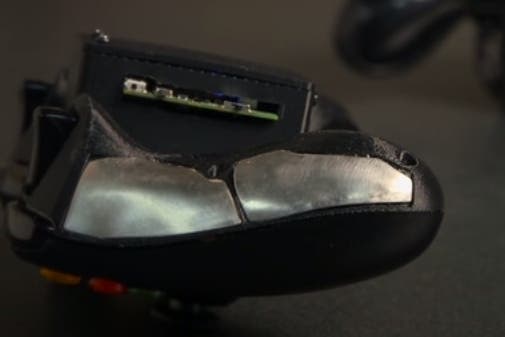University makes excitement-measuring game controller
Bored? It knows.
Engineers at Stanford University have built a prototype gaming controller that measures a person's heart rate, blood flow, rate of breath, deepness of breath and movement of controller to establish how excited by a game a person is.
If the data indicates you're bored, a game could spawn more zombies for you to fight; alternatively if you're getting too worked up - or your child is - then it can neuter the challenge.
That's the thinking anyway - there's no demonstration of a game adapting to keep a player excited yet.
Clever-clogs Corey McCall is leading the project, and built his prototype by modifying an Xbox 360 controller. He replaced the back of the pad with his own custom-built, sensor-stuffed invention, which has metal sensor pads, a light-operated sensor and an accelerometer.
Apparently the controller prototype got a lot of positive feedback when demonstrated at the Consumer Electronics Show at the beginning of the year.
It's not the first time we've heard about video game controllers measuring biometric data. Nintendo famously unveiled a Wii Vitality Sensor in 2009, which never emerged, and Valve has been thinking out loud about biometrics for years, although ultimately decided against any such thing for the Steam Controller.


